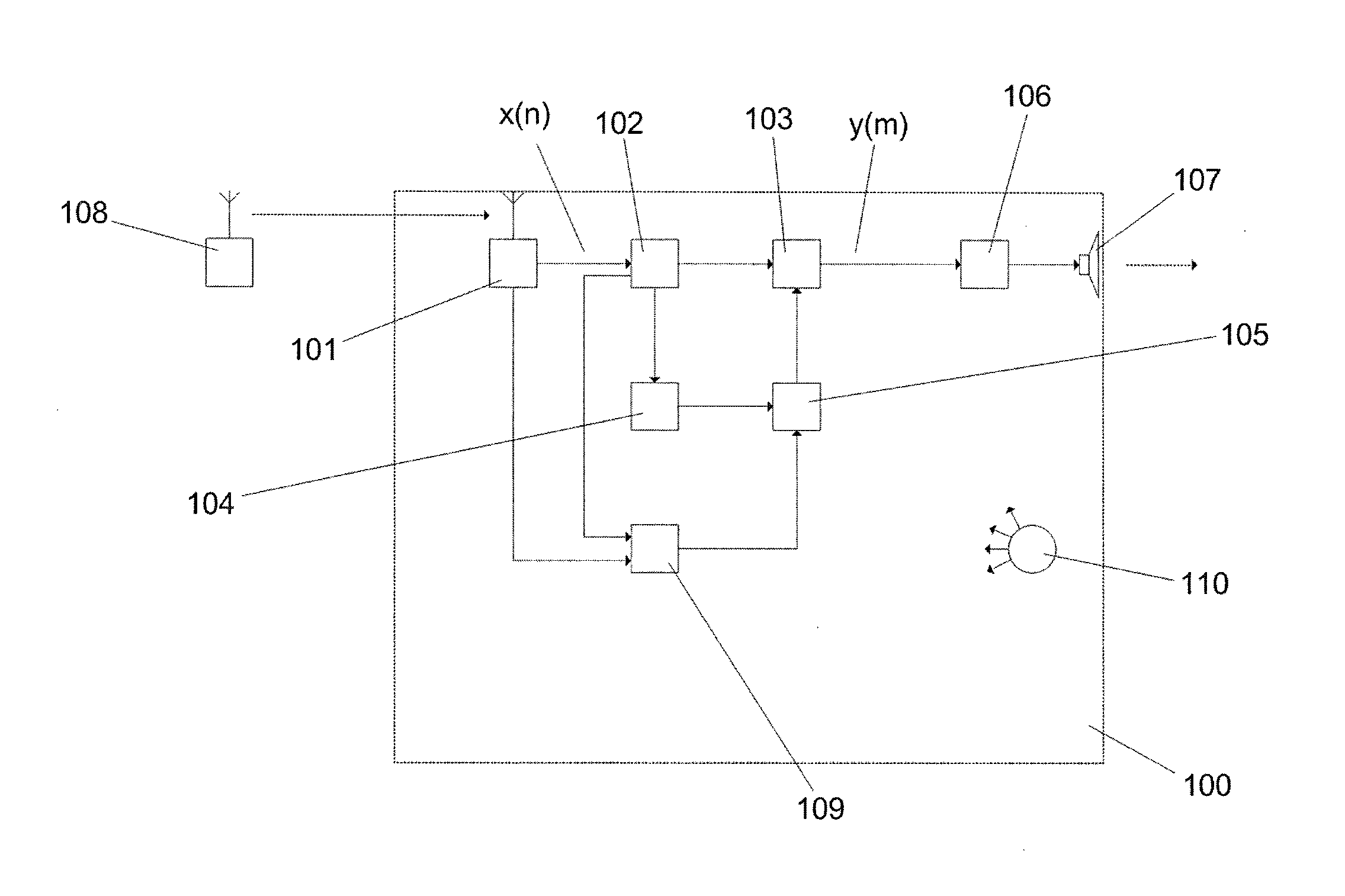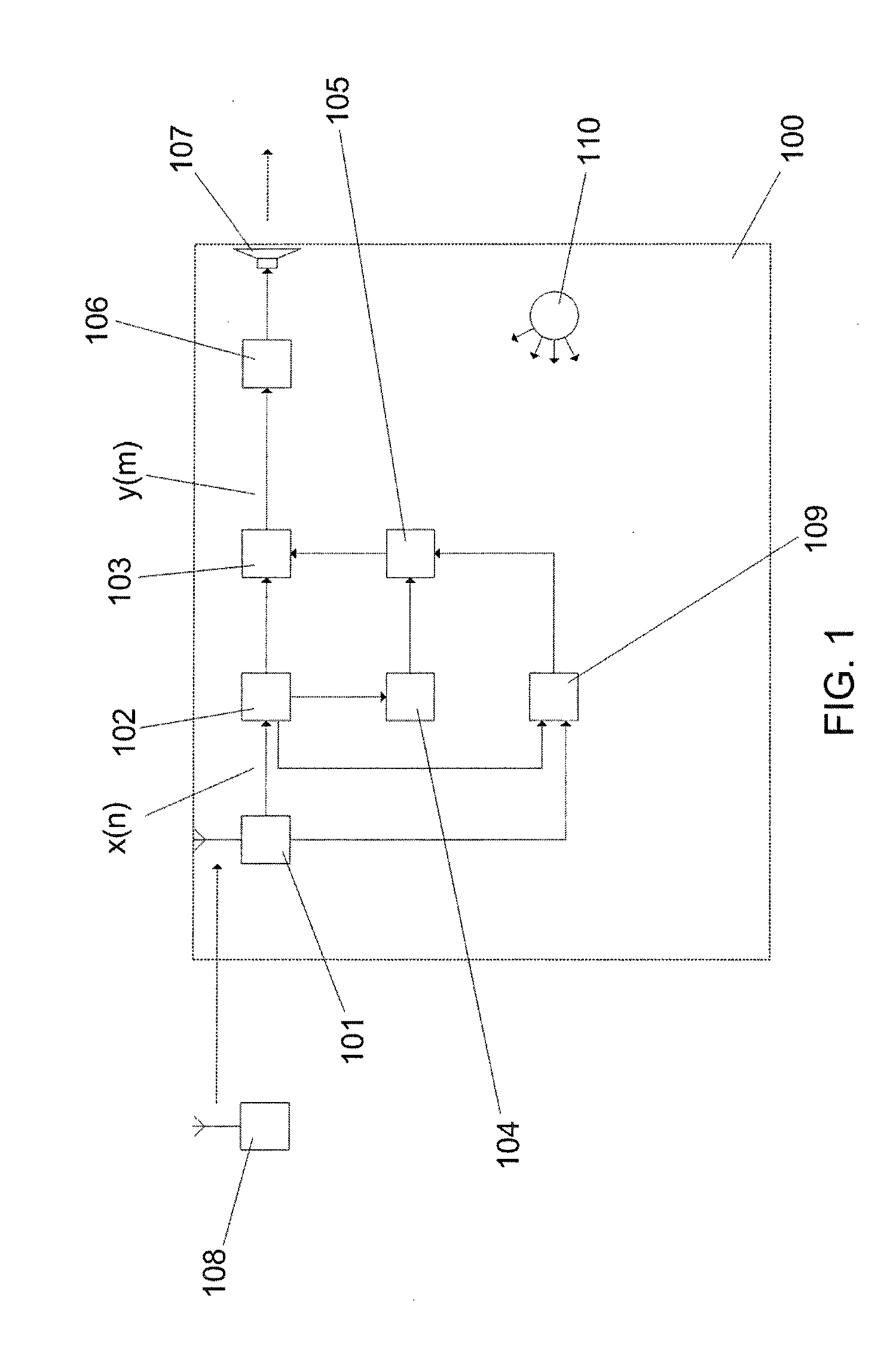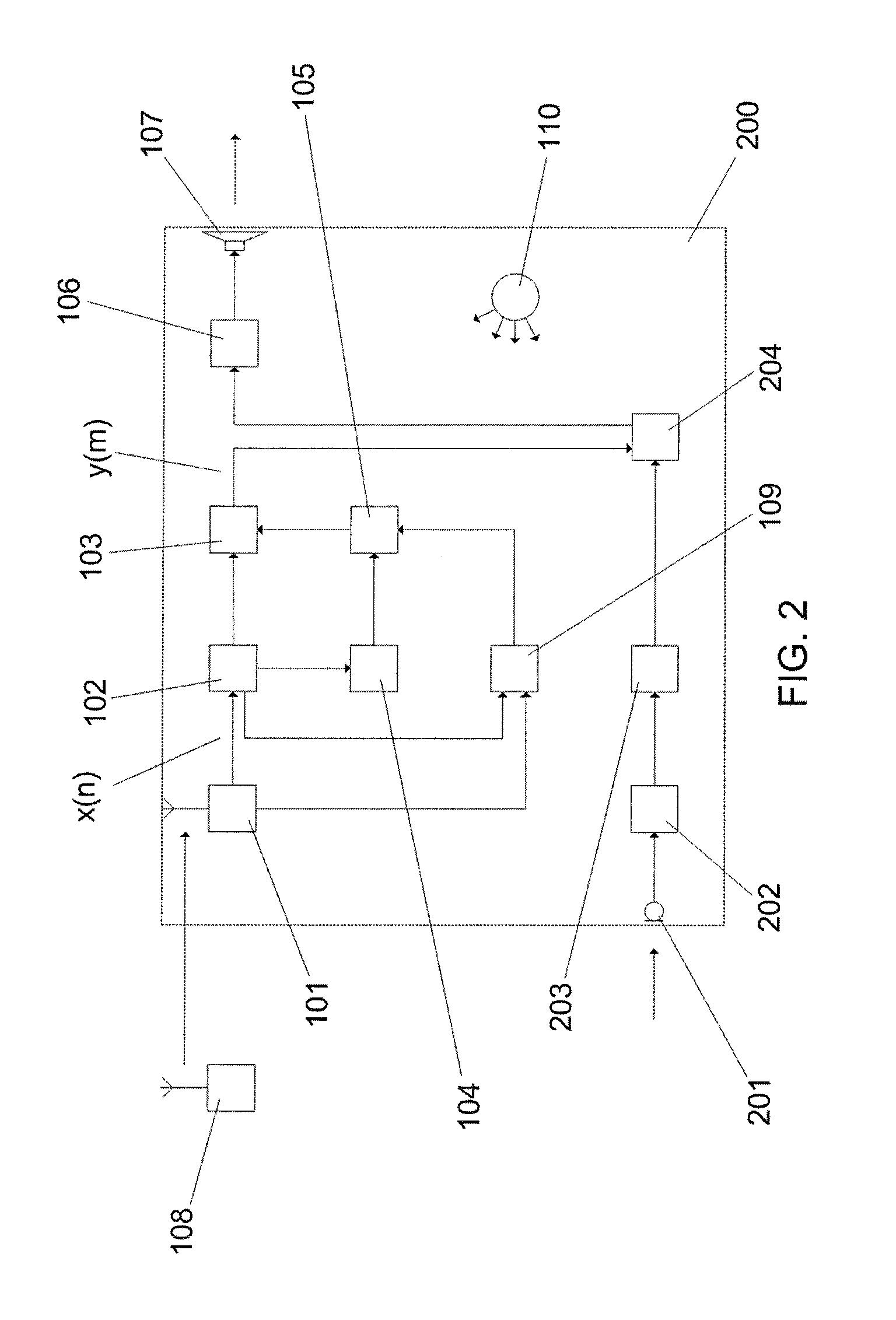Method for operating a hearing device and hearing device
a hearing device and hearing technology, applied in the direction of hearing aid testing/monitoring, deaf-aid sets, electric devices, etc., can solve the problem of increasing the risk of retransmission
- Summary
- Abstract
- Description
- Claims
- Application Information
AI Technical Summary
Benefits of technology
Problems solved by technology
Method used
Image
Examples
Embodiment Construction
[0036]The first embodiment of a hearing device 100 shown in FIG. 1 comprises a receiver 101, an input buffer 102, a sample processor 103, an estimator 104, a ratio controller 105, an amplifier 106 and an output transducer 107. The hearing device 100 may e.g. be an earphone or a headset and may be intended to be worn in an operating position by a user, such as e.g. at, in, on or close to an ear of the user.
[0037]A transmitter 108 transmits samples of a digital audio signal to the hearing device 100, e.g. by means of radio signals or other wired or wireless electronic signals. The transmitter may be any kind of device that is capable of transmitting a digital audio signal, such as e.g. a laptop computer, a mobile phone, a wireless microphone, a further hearing device etc. The transmission may be made using any suitable protocol, including continuous data protocols or packet data protocols such as e.g. Bluetooth Advanced Audio Distribution Profile (A2DP), which is a part of the Bluetoo...
PUM
 Login to View More
Login to View More Abstract
Description
Claims
Application Information
 Login to View More
Login to View More - R&D
- Intellectual Property
- Life Sciences
- Materials
- Tech Scout
- Unparalleled Data Quality
- Higher Quality Content
- 60% Fewer Hallucinations
Browse by: Latest US Patents, China's latest patents, Technical Efficacy Thesaurus, Application Domain, Technology Topic, Popular Technical Reports.
© 2025 PatSnap. All rights reserved.Legal|Privacy policy|Modern Slavery Act Transparency Statement|Sitemap|About US| Contact US: help@patsnap.com



